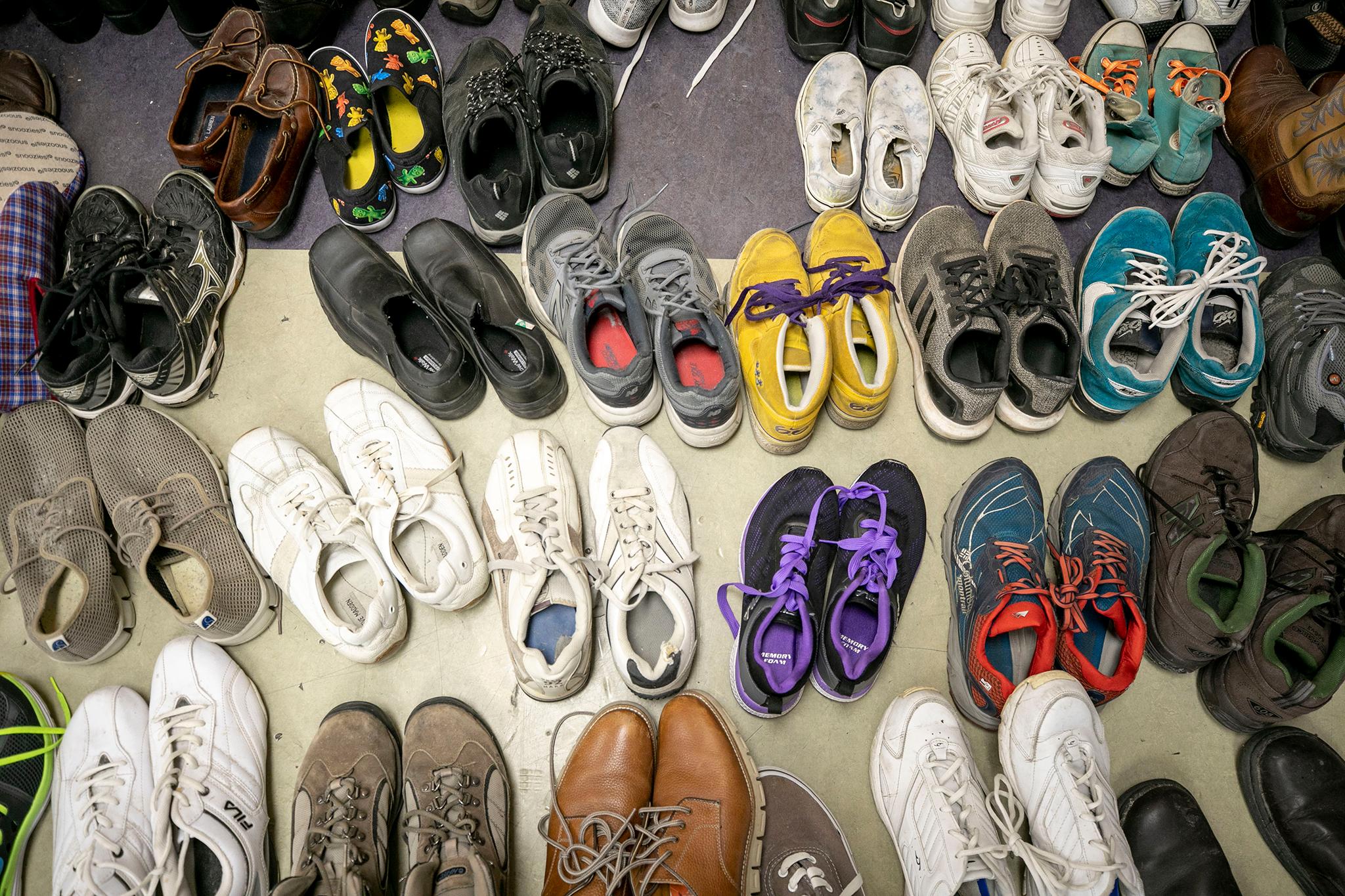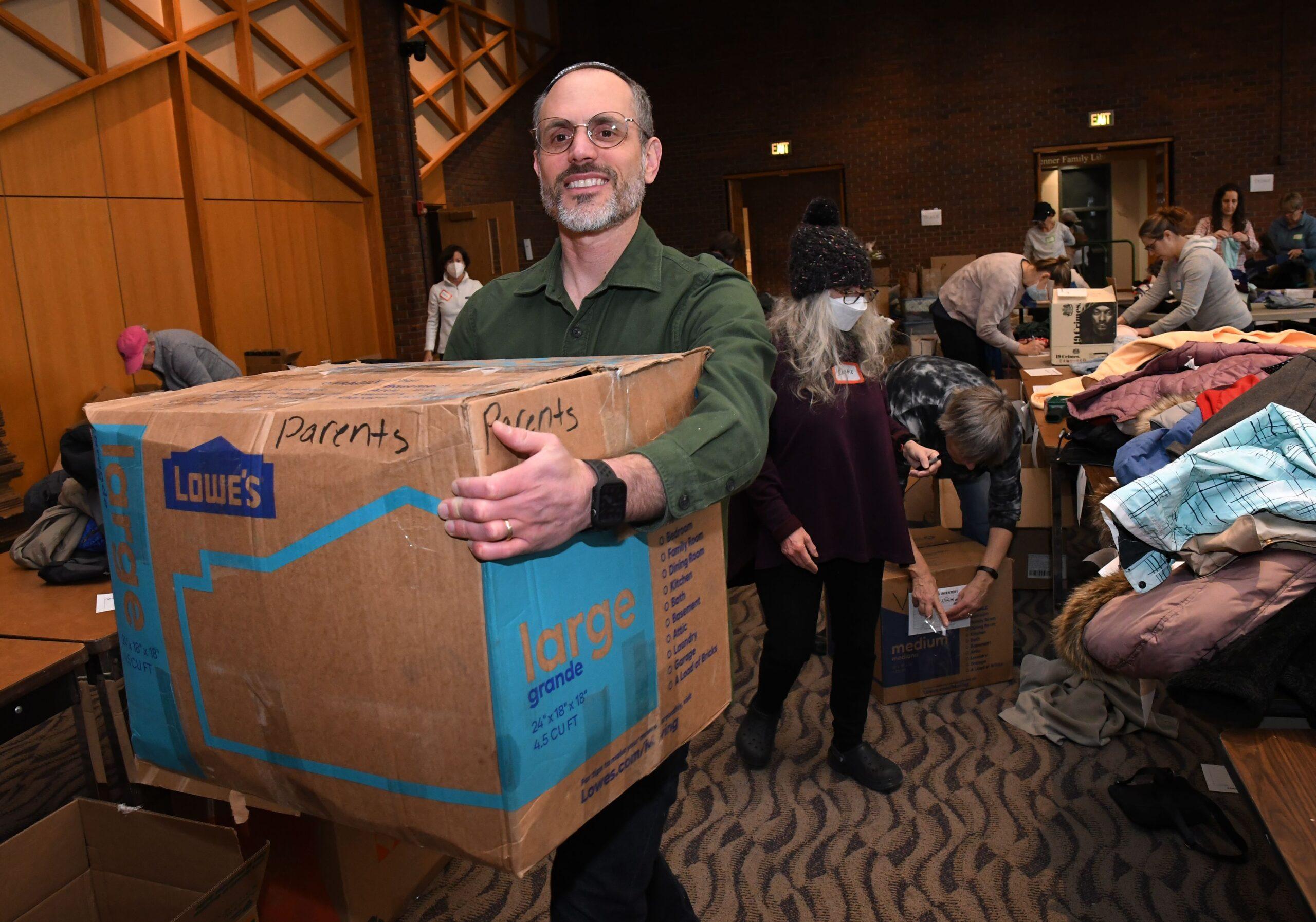On Thursday morning, a line of vehicles idled in the Temple Emanuel parking lot. Drivers waited to hand sacks of shirts, mittens, hats, boots and backpacks to dozens of volunteers who carted them into a massive room.
Inside, volunteers sorted mountains of donations meant for thousands of migrants and asylum seekers who have arrived from the southern U.S. border in Denver since last year. Their arrival has spurred a city-wide response from both government agencies and nonprofits.
"These are migrants that showed up at the Texas-Mexico border," said Dan Leshem, director of the Jewish Colorado's Jewish Community Relations Council. "So they were dressed appropriately for that climate. They were not ready to come to Denver. And nobody has equipped them or dressed them or provided them with anything before they got here. And it's freezing cold outside -- even in my jacket, and my socks and everything else. And people are here in flip-flops."
The massive effort has involved over 200 volunteers and 40 Jewish organizations in the Rocky Mountain region, who are working with the City of Denver, the State of Colorado and immigrant-rights nonprofits from the region.
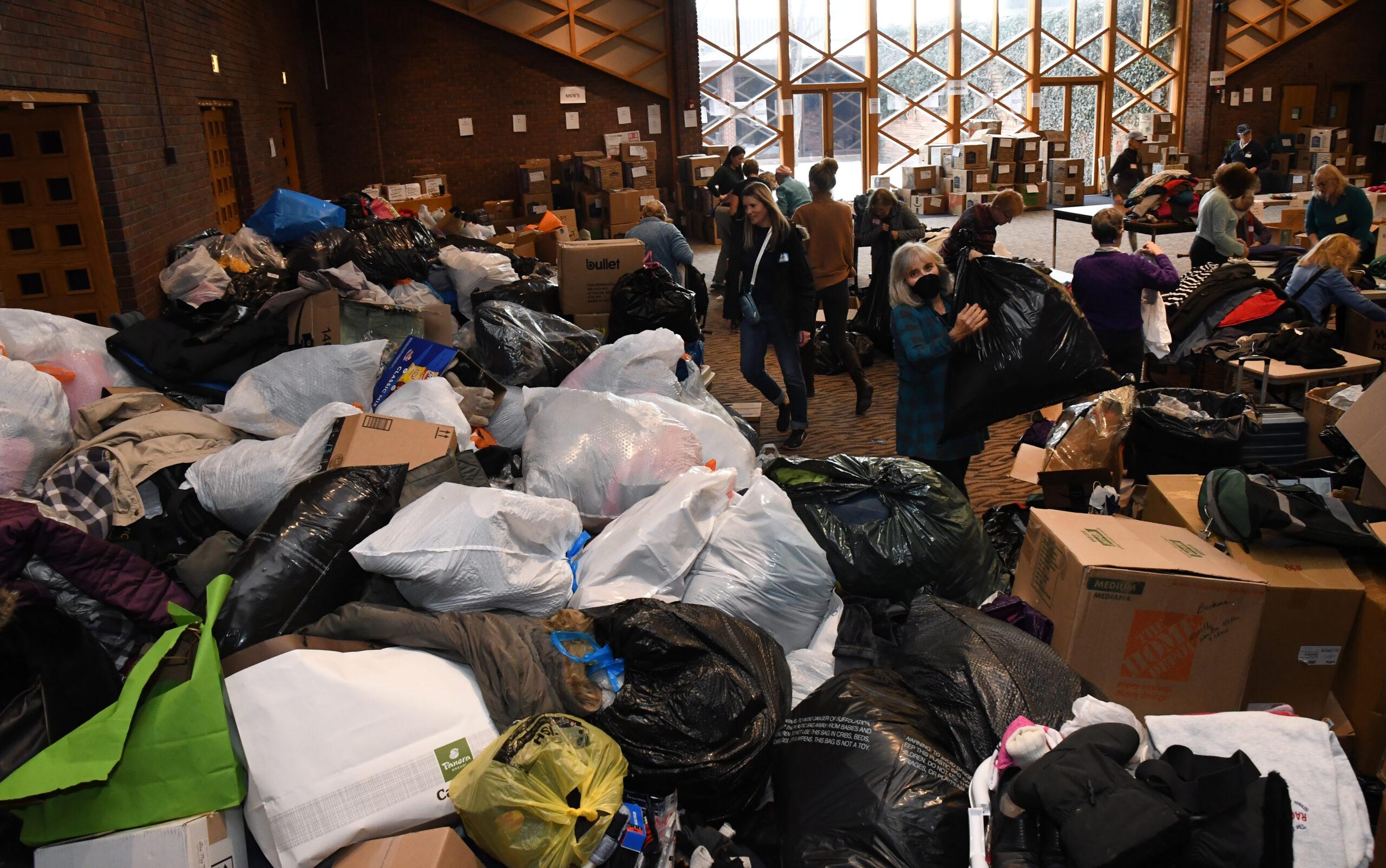
Two weeks prior, Derek Okubo, the head of the Denver Office of Human Rights and Community Partnerships, met with the Jewish Community Relations Council to discuss the city's attempt to address the arrival of migrants, many of whom were arriving at homeless shelters and overwhelming the system.
City agencies were scrambling to find a place to shelter the migrants, opening up emergency facilities. The usual nonprofits that support community groups, like the American Friends Service Committee and Organización Papagayo, were at capacity, keeping up with the demand.
At the meeting between Okubo and the Jewish Community Relations Council, the idea came up that the Jewish community could help.
"They were feeling so overwhelmed that I think I saw Derek be moved to tears at even the suggestion that we might be able to share some of this burden with them," Leshem said. "And so we brought them to be guest speakers at the very next Jewish Community Relations Council meeting, which happened to be five days later. And this site opened four days after that."
When news spread of the large arrival of migrants, many in the Jewish community wondered what they could do to help, said Rabbi Emily Hyatt of Temple Emanuel.
"We have had a hard couple of years," Hyatt said. "As humans on the planet, it has been rough."
COVID-19 has killed more than 6.7 million people around the world. Homelessness has risen in Denver and nationwide. The Jewish community has suffered an uptick in violence and vandalism. A couple pop-culture icons have thrown salt into the wounds with anti-Jewish rhetoric. Armed security has become the norm at many synagogues.
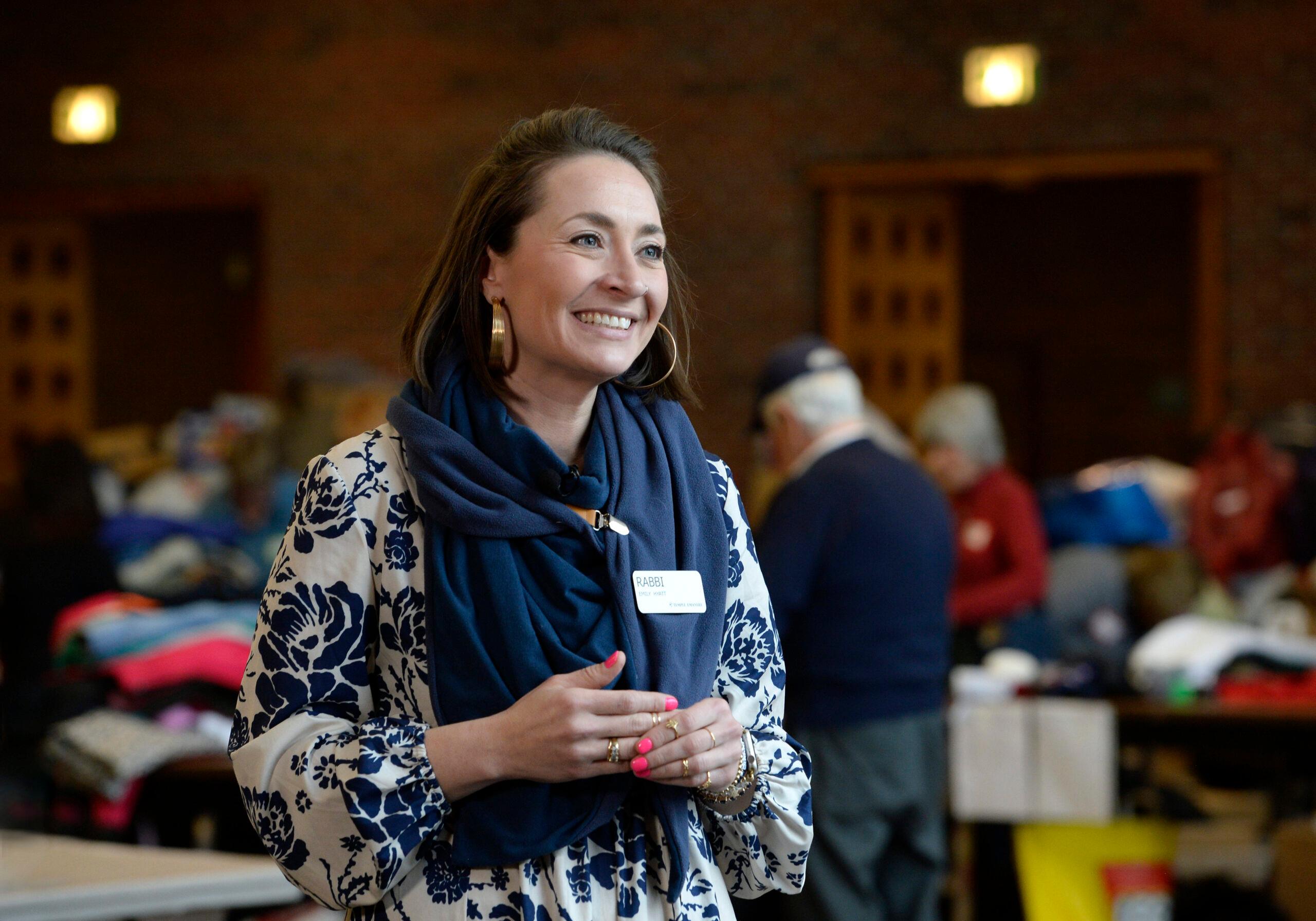
"One of the things as a rabbi that I hear all the time is people saying, 'I feel helpless. I know that things are bad and hard, and I have no idea what to do," Hyatt said.
To get involved in helping the migrants, people were being asked to have a background check, to know Spanish and to have 12-hour shift availability, she said. She didn't know Spanish. And 12 hours, while raising a kid and holding down a full-time job, wasn't something she could afford.
"I guess I'll donate money again," she said.
But at the meeting between the city and the Jewish Community Relations Council, "They said one of the things that they really needed was an East Denver donation site, because the West Denver site was pretty overwhelmed," said Hyatt. "And they only had one donation site going. And immediately something clicked in my brain."
The temple had thousands of square feet the congregation could donate.
"We've got a whole Jewish community of people that also feel helpless," she said. "And so six hours later, we were back on the phone on a separate Zoom call with the same office and with the Office of Emergency Management and their folks."
The community committed to help. Days later, Temple Emanuel opened the donation center and put out the word that donations of gently-used warm clothes, diapers and other supplies were needed.
Hyatt wondered if many would show. Volunteers flooded in. And soon, so did donors.
"We had all these volunteers and no idea what was going to happen," Hyatt said. "And the line of cars just started. And it's been like that nonstop since" -- even on days with "school-delay level snow."
This ongoing effort, run largely by lay people, includes participants in 40 Jewish organizations across the region along with the Jewish Community Relations Council and the Rocky Mountain Rabbis and Cantors. Temple Emanuel has committed to hosting drives and sorting days through January or until the crisis ends.
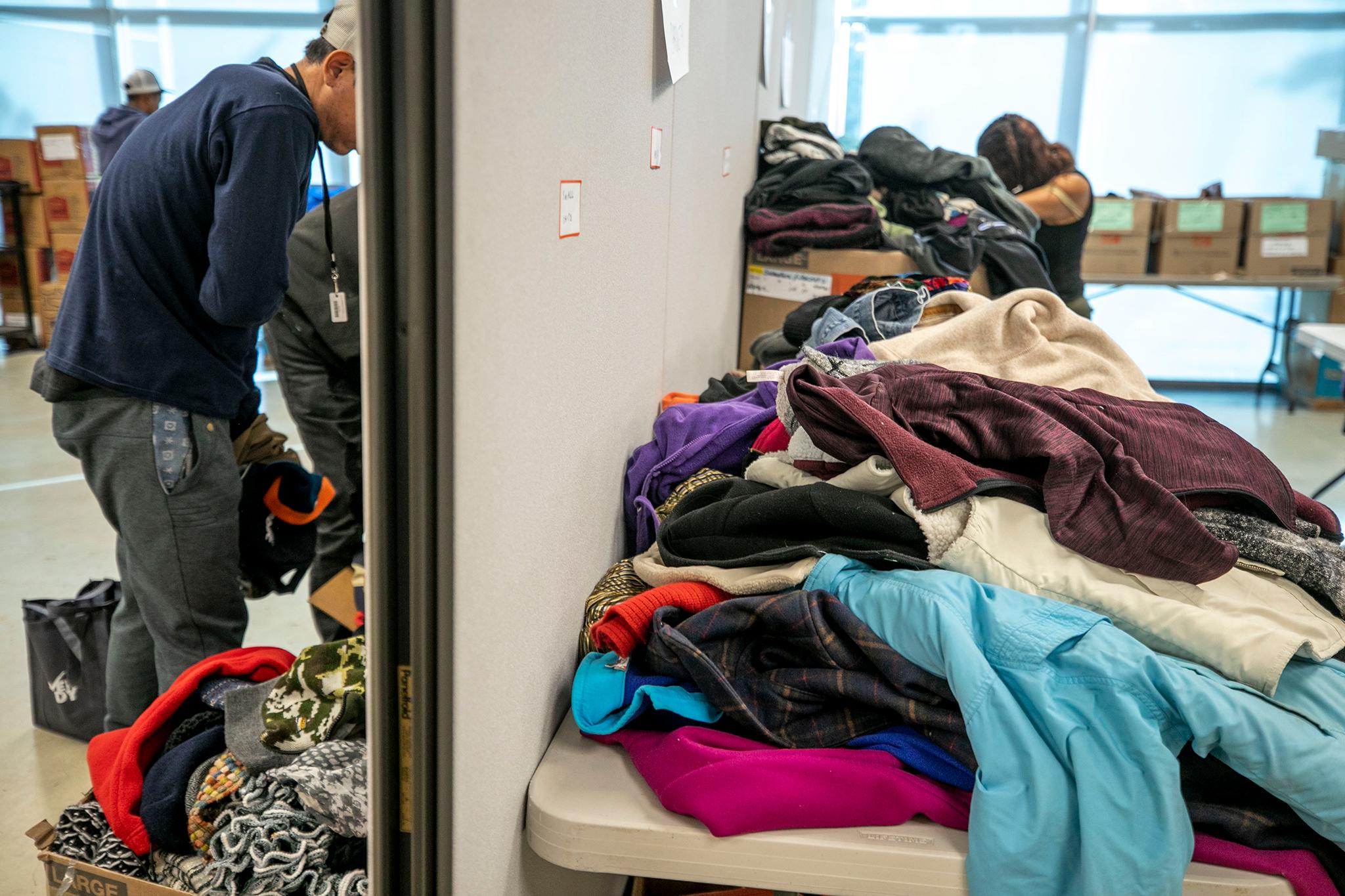
Leshem, a Holocaust scholar, sees the struggles of the Jewish people as a reason to take action in support of other migrants.
"The fact that this month, on Jan. 27, is International Holocaust Memorial Day is playing no small role in my mind as we are confronting another refugee crisis," said Leshem, who has also worked as director of Holocaust museums. "Folks are basically being turned away from every other place, which was a situation that in very recent memory and still in the lifetimes of some of our elders was an experience that they faced. And we know where that led."
Leshem has been reflecting on the memories of survivors of concentration camps.
"Many survivors will say, 'I survived because this one day in camp, somebody smiled at me -- a non-Jew. Or somebody gave me a crust of bread. And more than the smile, which does not fill your belly or put clothes on your back, it was that I was seen as a human being in a time when it had been a really long time since anyone looked at me that way. And that's what gave me the strength to survive.'"
Leshem hopes the Jewish community's work is doing the same for migrants.
Doing so is not just an ethic -- it's a religious commandment.
"It says almost countless times in our texts that we are commanded to, obligated to, called to love the stranger," Hyatt said. We're also asked to love your neighbor, to love the person that you do know. But way more than that, we're asked to love the person that you don't. And so many of those calls come with the follow-up: You are asked to love the stranger because you know what it feels like to be a stranger, right? Because you, yourself, were a slave in the land of Egypt"
She recalled a poem she heard from writer and poet Warsan Shire that spoke to the experience of migrants.
"She says, 'No one leaves home / unless home is the mouth of a shark. You only run for the border / when you see the whole city running as well' and 'you have to understand, / that no one puts their children in a boat / unless the water is safer than the land.'"
The Shire lines stick with Hyatt as she reflects on the experience the migrants are having.
"You don't come here with flip flops and get on a bus and wind up in Denver when it's two degrees outside unless home is scarier than what's ahead of you," Hyatt said. "The Jewish community knows what that feels like. And if we haven't experienced it ourselves, our ancestors have and it's in our bones, that we know that sometimes you have to leave. And leaving is the worst. And coming to someplace new is the scariest. And you do what you have to do to keep your kids safe and provide a better life for your family.
"And if somebody is waiting there with a jacket and a smile, and says, 'I know this is scary, and we're going to keep you warm' that has to make all the difference," Hyatt said. "And if we can do that, we have to."
